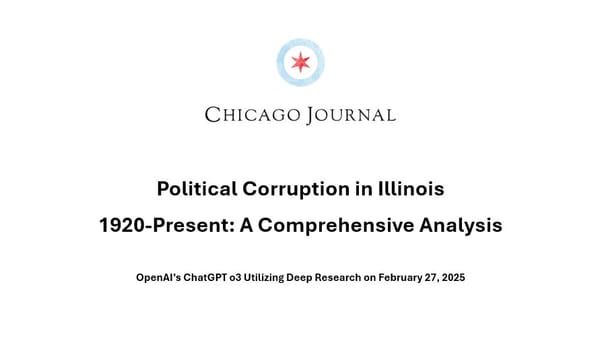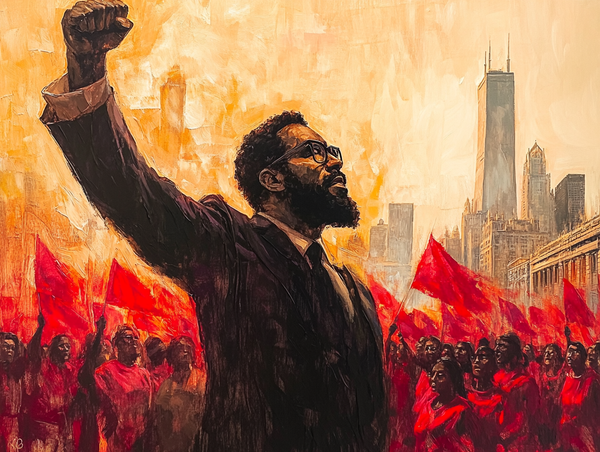Illinois Democrats' attempt to remove "conscience" from vaccine decision faces legal uncertainty
Citing three federal statutes, Democrats claim their action had nothing to do with curtailing religious freedom but constitutional scholars question how accessible those statutes are. The state currently has 11 lawsuits pending.


By JOHN O'CONNOR | AP Political Writer
SPRINGFIELD, Ill. (AP) — Lawsuits against Illinois over required COVID-19 vaccination were accumulating and the reason was clear: the legal claims leverage of the state's Health Care Right of Conscience Act in stating religious objections to the shot and in appealing sanctions, including losing a job, that come with refusal.[1]
Democrats who control the General Assembly went to work last month to change that, but publicly sidestepped the lawsuits as the reason.[2] They said their action had nothing to do with curtailing religious freedom. Anyone fired from a job after rejecting vaccination for religious reasons can file a lawsuit under one of at least three different federal statutes, they said.
"People will be able to claim a religious exemption well after the effective date of this law...," Senate President Don Harmon, a sponsor of the change, contended in debate. "The religious exemption exists in federal law and is unaffected by this."
But constitutional scholars question how accessible they are. The Civil Rights Act is the focus of religious objections to the vaccine, but it can present a high bar in the face of a deadly pandemic. The other laws cited by Democratic Gov. J.B. Pritzker's office — prohibiting employment discrimination under the Americans with Disabilities Act or those protecting age or genetic information — would likely not recognize a religious objection to the COVID-19 vaccine, they say.
The Constitution's Free Exercise clause is another area of scrutiny. It is the subject of cases arising in Maine and New York that challenge forced vaccination. Both are close to Supreme Court review.
The state's Health Care Right of Conscience Act, approved in 1978, has long been considered protection from repercussions against physicians who refuse on moral grounds to perform abortions.
The Democrats' clarification, which has yet to be sent to Pritzker for his OK, would ensure that the law's prohibition on penalties for religious objections doesn't apply to COVID-19 vaccine refusal.[3] Lawsuits across Illinois — nine alone so far in which the state is a defendant and two involving private parties that the state attorney general is monitoring — challenge penalties for rejecting inoculation based on the conscience act.[4]
But like Harmon, the House sponsor, Rep. Robyn Gabel, an Evanston Democrat, maintained a hands-off approach to religious-freedom challenges.
"The amendment ... (states) that nothing in this section is intended to affect any right or remedy under federal law...," Gabel said. "The religious accommodation exemption under federal law is still available for employees who have religious objections to vaccines."
But federal provisions have been interpreted narrowly. Title VII of the Civil Rights Act prohibits employment discrimination on the basis of religion, said Nelson Tebbe, professor of law at Cornell University. But an employer need not comply if it could harm other employees — which mixing with an unvaccinated colleague clearly could, he said.
As for the ADA, Tebbe said, "I don't know that a religious objection could count as a disability."
Katherine Franke, law professor at Columbia University in New York, whose areas of specialty include gender and sexuality law and rights and religion, noted that whether a religious exemption would hold up under the Civil Rights Act has not been tested in court.
But she clearly ruled out the Age Discrimination in Employment and the Genetic Information Discrimination acts, two federal laws Pritzker's office cited as applicable.
There might be a better reception for exemptions in the Free Exercise Clause, whose influence has grown with COVID-19's spread.
At a joint U.S. House subcommittee hearing late last month on vaccine requirements and accompanying employer accommodations, Douglas Laycock, a University of Virginia professor of law and religion, testified, "Vaccination is an easy case for refusing exemption. ... Serious threats to human life present compelling government interests."
And the U.S. Supreme Court has agreed, starting as long ago as 1905 — "at least until our current political polarization," Laycock added.
That track record is under scrutiny in Maine and New York, where federal courts have thus far upheld vaccine mandates for health care workers in New York and hospital and nursing home employees in Maine without offering exceptions for religious exemptions.[5][6]
In the Maine case, the U.S. Supreme Court rejected emergency intervention. Justices Amy Coney Barrett and Brett Kavanaugh, appointees of former President Donald Trump, advised caution in granting "extraordinary relief" in a first-of-its-kind case.
"Religious claimants say, 'If you can take alternate measures with respect to people who have medical reasons not to get vaccinated — like wearing masks and getting tested — then you should be able to apply those measures to religious claimants as well," Tebbe said.
AP Researcher Rhonda Shafner in New York contributed.
Follow Political Writer John O'Connor at https://twitter.com/apoconnor
Select COVID-19 vaccination lawsuits based on the Illinois Health Care Right of Conscience Act: https://bit.ly/2ZViieC
Notes & References
General Assembly, Illinois. “Health Care Right of Conscience Act.” 745 ILCS 70/ health care right of conscience act. Accessed November 8, 2021. https://www.ilga.gov/legislation/ilcs/ilcs3.asp?ActID=2082&ChapterID=58. ↩︎
O'connor, John. “Weaker Conscience Law Goes to Senate amid GOP Taunts.” AP NEWS. Associated Press, October 29, 2021. https://apnews.com/article/coronavirus-pandemic-health-religion-legislature-illinois-f73a7550068b7e2219a3f0e9b3ff3f9b. ↩︎
General Assembly, Illinois. “Amendment to Senate Bill 1169.” Illinois General Assembly - full text of SB1169. Accessed November 8, 2021. https://www.ilga.gov/legislation/fulltext.asp?DocName=10200SB1169ham003&GA=102&SessionId=110&DocTypeId=SB&LegID=133801&DocNum=1169&GAID=16&SpecSess=&Session=. ↩︎
“LAWSUITS INVOKING THE ILLINOIS HEALTH CARE RIGHT OF CONSCIENSE ACT CHALLENGING PENALTIES IMPOSED FOR REFUSING TO BE VACCINATED AGAINST COVID-19.” DocumentCloud. Accessed November 8, 2021. https://www.documentcloud.org/documents/21099057-illinois-right-of-conscience-lawsuits-over-covid-19-vaccinations. ↩︎
Neumeister, Larry. “US Appeals Court Gives Greenlight to NY's Vaccine Mandate.” AP NEWS. Associated Press, October 30, 2021. https://apnews.com/article/coronavirus-pandemic-health-religion-new-york-brooklyn-0a5450722274a675f20948cdbeb24d35. ↩︎
Sharp, David. “Supreme Court Declines to Block Maine Vaccine Mandate.” AP NEWS. Associated Press, October 30, 2021. https://apnews.com/article/us-supreme-court-health-maine-6f246ae1c1dd501e40ceb470f0cc2366. ↩︎





